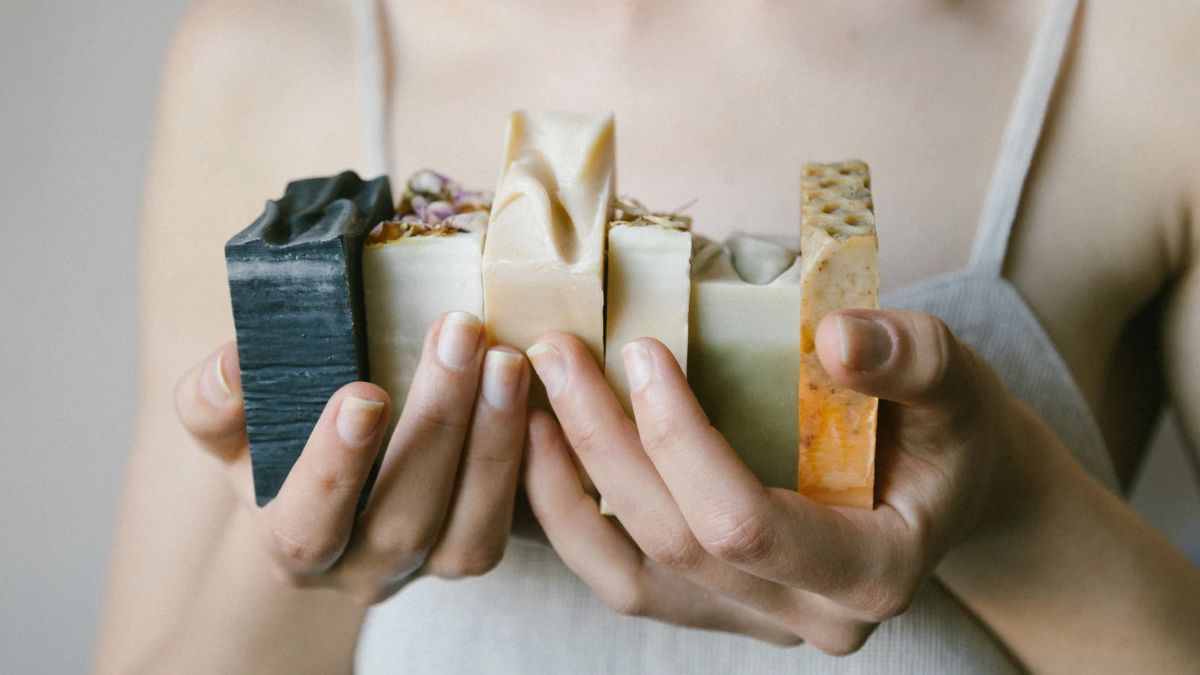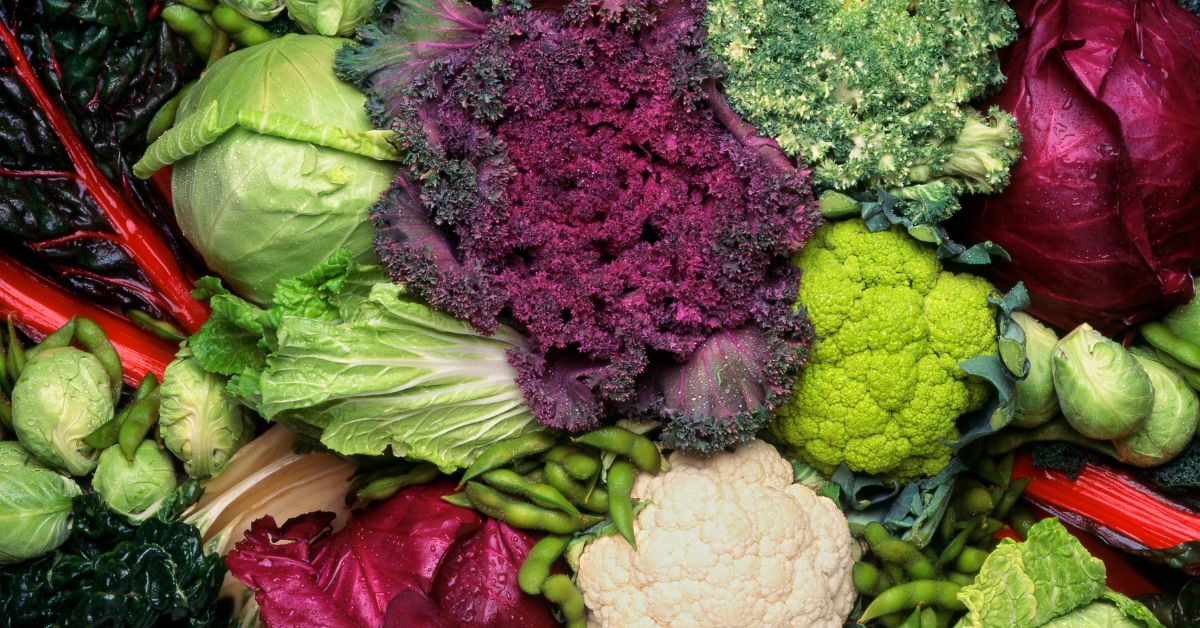I am aware of the significance of preserving the quality and freshness of your produce. It doesn’t matter if you’re a seasoned gardener or just starting out in the world of homegrown fruits and vegetables; having the knowledge of how to store apples properly can make all the difference in the world when it comes to preserving their flavor and freshness for the longest amount of time possible.
In this comprehensive guide, we will walk you through the steps of storing your apples in the correct manner so that you can continue to enjoy the apples’ crispness and flavor for weeks or even months after they have been harvested. In addition, we will provide you with some pointers and advice to assist you in avoiding common errors that can result in the spoilage of your apples, as well as suggestions for how you can use them in a variety of different recipes.
How do you keep apples fresh longer?
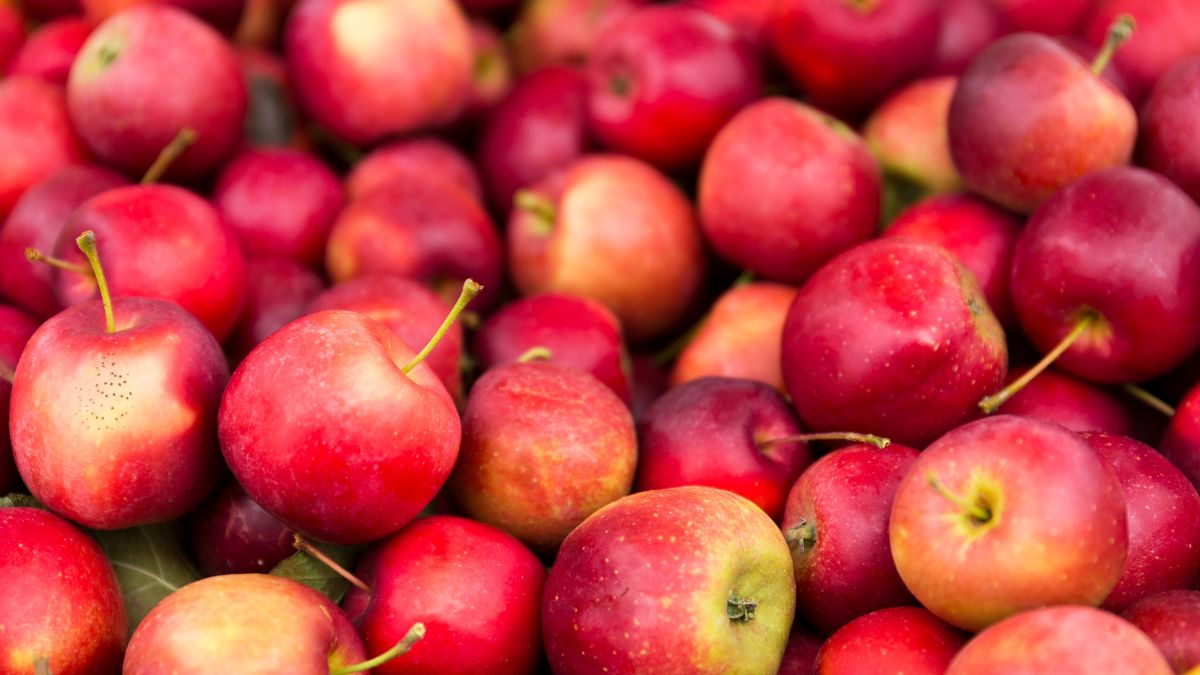
In a nutshell, keep them cool.
The best temperature range for storing items is between 30 and 35 degrees Fahrenheit, with relative humidity ranging from 90 to 95 percent. The refrigerator is a wonderful alternative to consider if you do not have a large supply of apples. Either place them in a plastic bag with holes cut out of it and store them in the crisper drawer of your refrigerator, or cover the apples with a moist paper towel.
The Right Way to Store Apples in Your Grocery Store Finds
Not all of us have the luxury of an apple tree in our backyard. So, when you purchase apples from the grocery store, proper storage techniques become even more essential. The ideal place to store your store-bought apples is in the crisper drawer of your refrigerator. This drawer is designed to hold moisture, thereby keeping your apples crisp and fresh for longer. If you don’t have space in your crisper, a plastic bag with holes will work well too. This bag allows airflow while retaining some moisture.
You might want to read this: The Beauty and Benefits of Mowing Autumn Leaves with Your Lawnmower
Understanding Apple Varieties and The Right Time for Long-Term Storage
The apple season, typically in September and October, is the best time to pick and store apples. Freshly picked apple varieties, such as the crisp and tart Granny Smith, provide the best quality when it comes to long-term storage. Understand that not all apple varieties are created equal; some are better suited for extended storage than others. For instance, a picked Granny Smith apple, renowned for its longevity, is often a top choice. Knowing your apples will aid in successful preservation.
Step 1: Choose the Right Apples for Storage
When it comes to their ability to withstand long-term storage, not all apples are created equal. It’s common knowledge that certain apple varieties, like Granny Smith, Fuji, Braeburn, Crispin, Gold Rush, Pink Lady, Rome, Winesap, Jonathan and Honeycrisp, have a shelf life that’s significantly longer than that of others. Be sure to pick apples that are solid, free of any blemishes, and devoid of any signs of decay, such as soft spots or mold.
Step 2: Clean and Dry Your Apples
It is essential to thoroughly clean your apples before putting them away for the winter. After washing each apple under a stream of lukewarm running water, pat it completely dry using a clean towel or a clean cloth. It is essential to complete this step in order to eliminate any dirt, bacteria, or residue that might cause the food to go bad.
Step 3: Deciding Where to Store Apples for Optimum Freshness
Contrary to common belief, not all fruits and vegetables are stored the same way. Apples, for instance, should be stored in a cool, dark place, away from other fruits and vegetables. This is because they release ethylene gas, a natural compound that speeds up ripening. A common adage in fruit storage is that “a bad apple spoils the whole bunch.” This saying stems from the fact that one overripe apple can hasten the ripening of nearby apples, leading to premature spoilage. Hence, it’s crucial to monitor your stored apples frequently and remove any that show signs of spoiling.
Preparing Apples for Long-Term Storage
If you plan to store sliced apples or cut apples for extended periods, there are a few extra steps you’ll need to take. Sliced apples have a tendency to brown quickly when exposed to air due to oxidation. To prevent this, simply toss your apple slices in a bit of lemon juice before storing them. This acid stops the enzymatic browning reaction, helping your sliced apples stay fresh for longer.
The cut apples should then be wrapped in a damp paper towel before being placed in a paper bag for storage. The damp paper towel provides the necessary humidity to keep the apples from drying out, while the paper bag aids in the absorption of excess moisture, preventing mold growth.
The Art of Freezing Apples for Longevity
When it comes to long-term storage beyond a few weeks, you might want to freeze apples. Start by washing, peeling, and coring the apples. Then cut them into slices or dice, whichever you prefer. To prevent browning, toss them in a bowl with some lemon juice. Then, lay the apple pieces out on a baking sheet lined with parchment paper, ensuring they aren’t touching, and freeze. Once frozen, transfer them into freezer-safe bags or containers. Remember to leave a little headspace to allow for the expansion that occurs when apples freeze. Frozen apples can last up to a year and are perfect for cooking and baking.
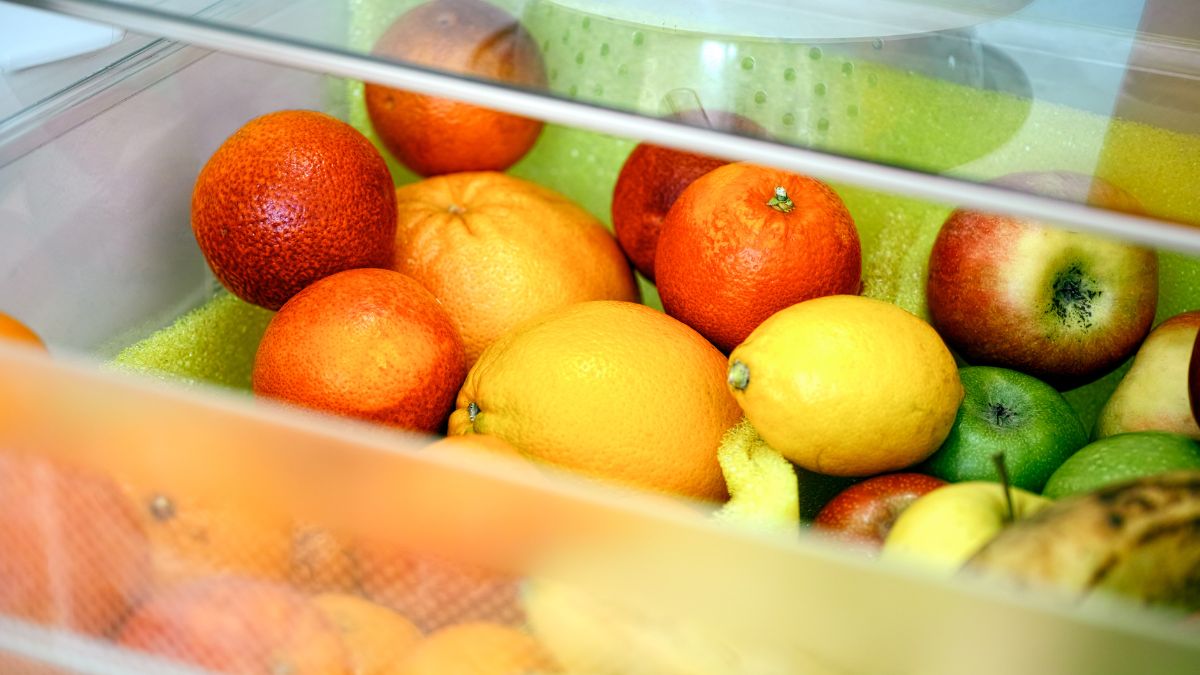
There are a few different methods you can use to keep your apples at their peak level of freshness, depending on the amount of space you have available and your own preferences:
Refrigerator: Place your apples in the crisper drawer of your refrigerator to keep them fresh for a shorter period of time; in this location, apples can stay fresh for up to two to three weeks. They should be stored in a plastic bag with perforations to help them retain their wetness and stop them from drying out.
Root Cellar: If you have a cold, dry, and well-ventilated location in your house, such as a root cellar or basement, this is the best place to keep your apples in order to maintain their freshness over an extended period of time. Apples may also be stored in the refrigerator. Wrapping each apple with newspaper or tissue paper will prevent them from being bruised while they are being stored in a single layer in crates or cartons.
Freezer: If you want to store apples for an even longer period of time, you may use a freezer. They should be peeled and sliced before being stored in airtight containers or freezer bags. They may be stored for up to 6–8 months in the freezer without going bad.
Basement: Apples are best stored in an unheated basement, if you have one. Even if your basement is heated, you may be able to create a chilly climate by closing the vents in a particular room or area. While basements often have greater humidity levels, if you live in an area that is exceptionally dry or heat your home with wood (which can be quite drying), you may want to use a humidifier or frequently spritz your apples with water from a spray bottle.
In a cool room: Apples should be kept in a cold, dark, and preferably unheated room or closet. Almost every home has at least one cooler room than the rest. Due to the fact that this is located in a heated portion of the home, the temperature will be higher than is optimum, resulting in a shorter storage duration.
You might want to read this: Aeroponic Gardening 101: Be An Aeroponic Expert
Step 4: Check and Rotate Your Apples Regularly
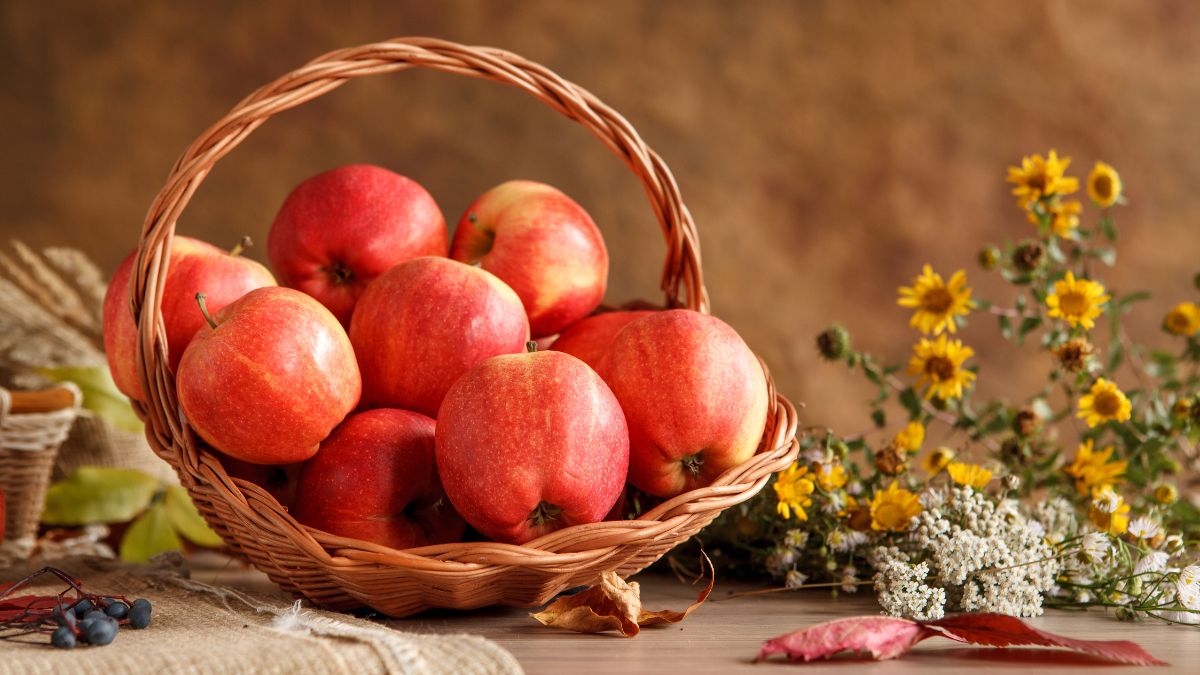
It is vital to inspect your apples on a regular basis for any symptoms of deterioration, such as softness or discoloration, regardless of the method of storage that you choose to use for them. If you find any apples that have gone bad, you should get rid of them right away before the rest of the apples are affected.
In addition, you should make it a habit to switch the apples around on a regular basis so that you start by eating the apples that were kept on the top or at the front of the pile. This will assist to keep the apples from going bad and will guarantee that they are always delicious and fresh.
Using Your Stored Apples
You may be wondering what to do with your apples now that you know how to keep them fresh and how to properly store them. Here are some suggestions:
- Bake them into a delicious apple pie, crisp, or crumble.
- You may have them sliced and served with peanut butter or cheese as a nutritious snack option.
- Cook your own applesauce or apple butter from scratch.
- They may then be sliced and frozen for later use in porridge or smoothies.
Conclusion
Apples may retain their crispness and taste for many weeks or even months after they have been harvested if they are stored in the correct manner. If you follow the methods that are indicated in this tutorial, you will be able to guarantee that your apples are always ready to be used in a variety of dishes or enjoyed as a nutritious snack. Do not allow your apples to go bad; instead, store them carefully so that you may continue to enjoy their delectable taste throughout the year.
Where should you store apples? Here is a great video I strongly recommend!
FAQ
Can you freeze fresh raw apples?
Apples can be frozen whole, and the process requires very little work, therefore the answer to your question is yes. There is no faster path from the orchard to the freezer than having the fruit washed and then either individually wrapped in plastic or placed in Ziploc bags before being frozen. While it may be simple to do, keep in mind that the ultimate result will be an apple that will be difficult to use when the time comes.
Are apples good after they freeze?
If the temperature doesn’t drop below 28 degrees for an extended period of time, your apples should be OK.
Do apples last longer in the fridge or on the counter?
They like the refrigeration system more. Apples last longest when stored at 30-35 degrees Fahrenheit. As a result, you need to store them in the section of the refrigerator that is the coldest. The majority of household refrigerators are not designed to go very cold since the remaining food in the fridge will freeze, but the colder it gets, the better.
Should I wash apples before storing?
You may give apples a little brushing to remove any obvious dirt before you put them in storage, but it is not necessary to wash them until you are ready to eat or cook with them. Apples that have been washed too much with water are more likely to rot and deteriorate quickly; thus, you should keep them in their natural state until you are ready to eat them or use them in apple recipes.
How do you store sliced apples so they don’t turn brown?
Make a salt solution by dissolving a quarter of a teaspoon of salt in two glasses of water. Before serving or storing, soak the apple slices in the salt water for a few minutes. You can prevent browning for up to a week using this brine. To prevent apples from turning brown after being chopped, toss them in a bowl of lemon juice.
